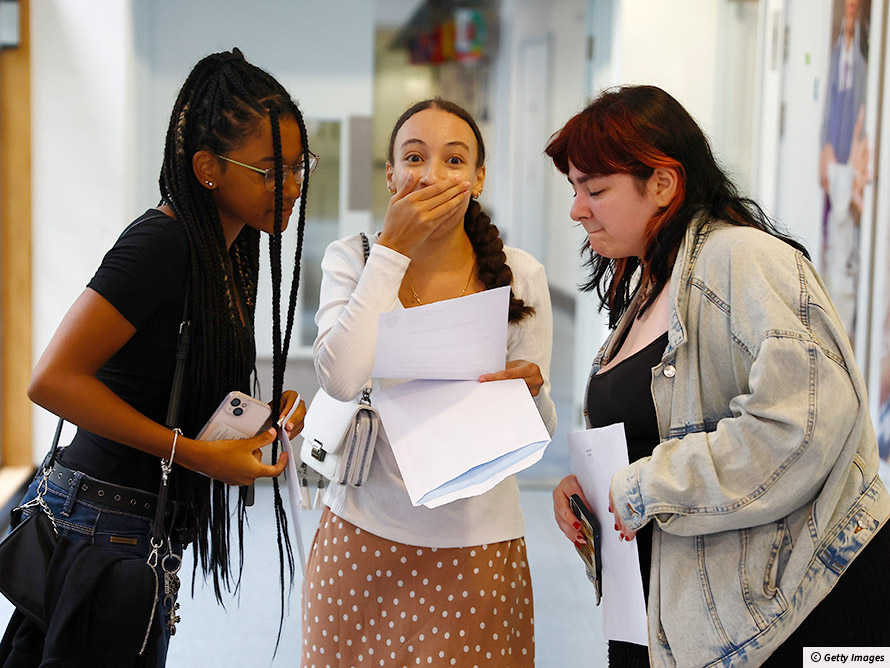Is the exam system fit for purpose? With exam season rapidly approaching, a growing number of critics think we should replace the current tests with something completely different.
Scrap GCSEs says man who created them
 A wider movement: Students celebrate GCSE results (above) while across Western education many argue that all-or-nothing exams are a misguided way of assessing a child’s overall ability.
A wider movement: Students celebrate GCSE results (above) while across Western education many argue that all-or-nothing exams are a misguided way of assessing a child’s overall ability. Glossary
GCSEs - National exams taken by 15 and 16-year-olds in England, Wales and Northern Ireland.
Think tank - A research organisation focusing on a certain topic, such as climate policy or education. They often produce information used by businesses, governments and big organisations.
Tony Blair - Tony Blair was the leader of the Labour party. He was British prime minister from 1997 to 2007.
Obsolete - Outdated and no longer useful.
AI - A computer programme that has been designed to think.
Labour - Britain's main left-of-centre political party.
